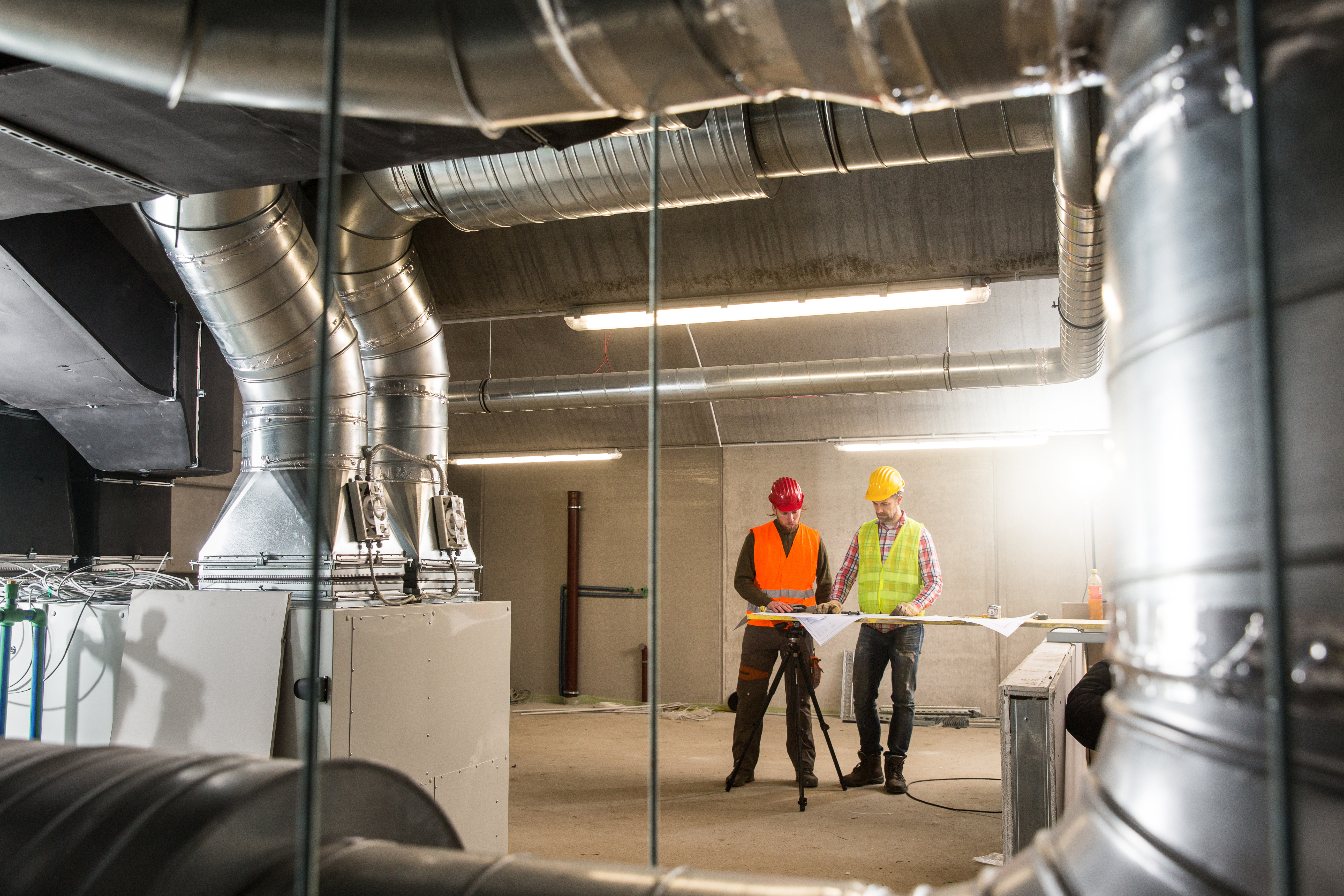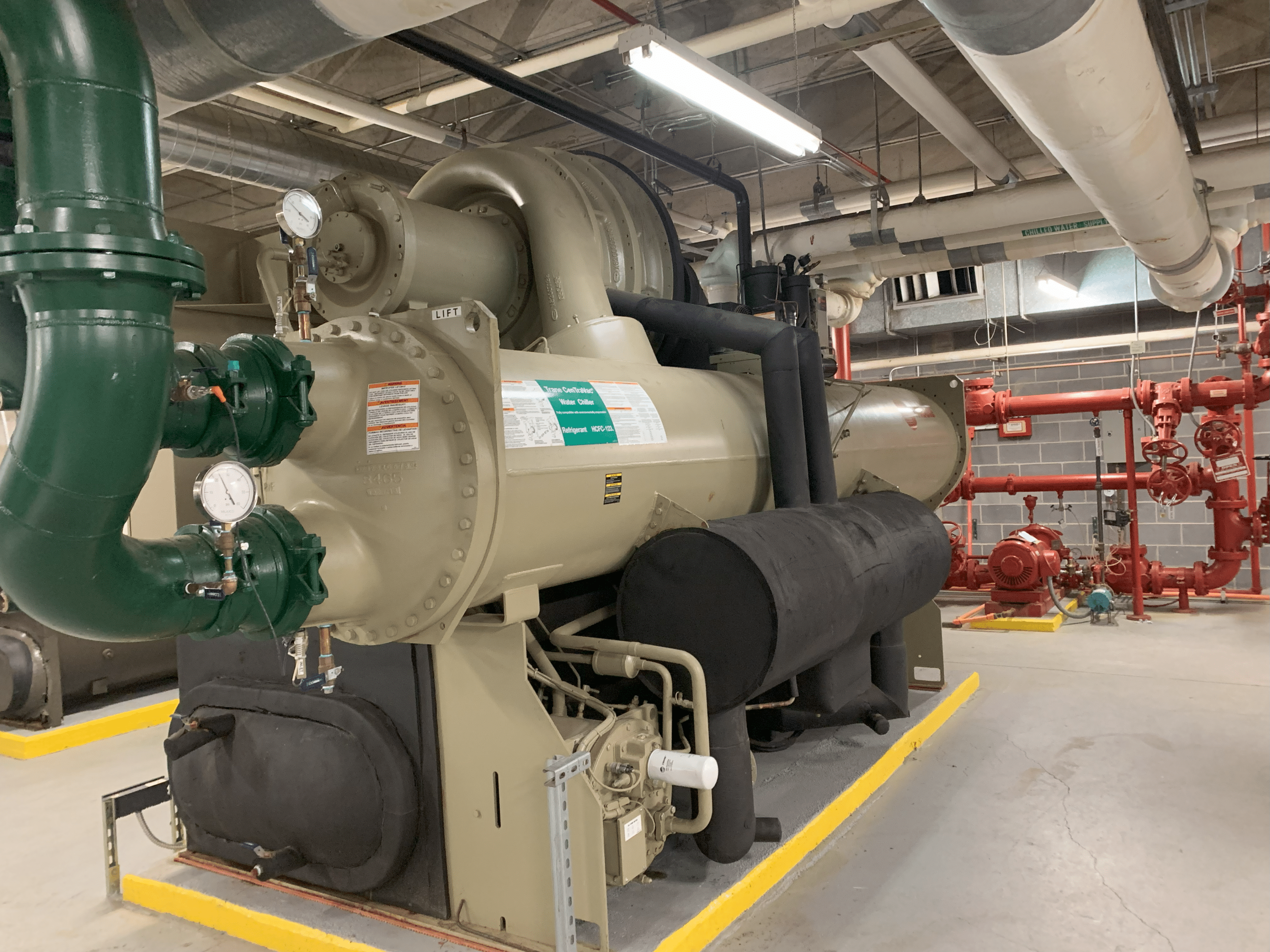Find out how HVAC experts provide value-packed air comfort solutions
Wiki Article
Exploring the Necessary Components of an Effective Cooling And Heating System
An efficient heating and cooling system is improved numerous vital parts that work in consistency. Each part, from the thermostat to the ductwork, plays an essential function in maintaining comfort and energy effectiveness. Comprehending these aspects is crucial for optimizing efficiency and boosting interior air quality. As one analyzes these components, the elaborate connections between them expose insights right into enhancing general system performance. What certain aspects contribute most to this efficiency?The Role of the Thermostat in Heating And Cooling Effectiveness

Typically ignored, the thermostat plays a crucial function in the efficiency of HVAC systems. This little device acts as the primary nerve center, managing temperature level setups and ensuring perfect comfort within a space. By properly picking up the ambient temperature, the thermostat communicates with the heating, ventilation, and air conditioning systems to keep the desired environment
An efficient thermostat lessens energy usage by turning on the cooling and heating system just when necessary, therefore avoiding too much home heating or air conditioning. Modern programmable and clever thermostats enhance this performance additionally by permitting users to set routines and remotely change settings, adjusting to everyday regimens.
Moreover, the positioning of the thermostat is essential; incorrect location can bring about unreliable temperature level readings, leading to inefficient procedure. In general, a well-functioning thermostat not just enhances convenience however additionally adds considerably to power cost savings and the longevity of the a/c system.
Recognizing the Relevance of Air Filters
Air filters offer a vital function in a/c systems by ensuring that the air distributing within a room remains clean and healthy. These filters catch dust, irritants, and various other toxins, stopping them from being recirculated throughout the environment. By catching these fragments, air filters add to boosted interior air quality, which can considerably profit occupants' health and wellness, especially those with allergic reactions or respiratory system problems.Additionally, preserving tidy air filters boosts the efficiency of a/c systems. Stopped up filters can restrict air movement, creating the system to function more difficult to keep preferred temperature levels, bring about boosted power intake and greater energy expenses. Regularly changing or cleansing filters is an important maintenance action that can lengthen the life-span of heating and cooling devices. Eventually, recognizing the value of air filters allows property owners and building managers to take aggressive steps to assure a well-functioning, efficient a/c system that promotes a risk-free and comfy interior atmosphere.

The Capability of the Heater and Heatpump
Furnaces and heat pumps are important elements of HVAC systems, liable for giving heat throughout chillier months. Heating systems operate by heating air via combustion or electric resistance, after that distributing it throughout the home using ducts. They typically use rapid heating and can be sustained by all-natural gas, electricity, or oil, depending upon the system type.Alternatively, warmth pumps transfer heat as opposed to produce it. They draw out heat from the outside air or ground, also in reduced temperature levels, and transfer it inside. HVAC experts. This twin functionality allows heat pumps to also supply air conditioning in warmer months, making them functional alternatives for year-round climate control
Both systems require appropriate maintenance to ensure efficiency and durability. While heaters stand out in extreme cool, heatpump can be helpful in moderate climates. Recognizing their distinctive functionalities help house owners in selecting one of the most suitable option for their home heating requires.
Checking Out the Air Conditioning System
The air conditioning unit is a crucial component of HVAC systems, readily available in different types to match various requirements. Understanding the efficiency ratings of these devices is important for making informed selections concerning power intake and cost. This section will certainly explore the diverse sorts of a/c unit and make clear exactly how effectiveness rankings look at these guys effect efficiency.Sorts Of Air Conditioners
While different elements affect the option of air conditioning systems, comprehending the different kinds readily available is HVAC experts important for house owners and structure managers alike. Central air conditioners are made to cool entire homes or structures, making use of a network of air ducts for air flow. Window devices use a more localized remedy, ideal for solitary spaces or tiny rooms. Mobile a/c unit supply adaptability, permitting individuals to move the device as required. Ductless mini-split systems are an additional choice, combining the effectiveness of main systems with the comfort of zoning, as they require no ductwork. Geothermal systems harness the planet's temperature for energy-efficient cooling. Each kind includes distinct benefits, making notified selections crucial for efficient climate control.
Efficiency Rankings Explained
Comprehending performance rankings is necessary for picking the appropriate cooling device, as these metrics provide insight into the system's performance and power usage. The most typical rating for a/c is the Seasonal Energy Efficiency Ratio (SEER), which measures the cooling outcome throughout a common cooling season divided by the total electric energy input. A greater SEER shows better effectiveness. Furthermore, the Power Efficiency Proportion (EER) is used for gauging effectiveness under details conditions. An additional essential metric is the Energy Star qualification, which indicates that a device satisfies stringent energy performance guidelines. By examining these scores, customers can make educated choices that not only optimize convenience however additionally decrease power costs and environmental impact.The Relevance of Ductwork and Airflow
Efficient ductwork design and airflow administration play vital functions in the general performance and efficiency of HVAC systems. Proper ductwork warranties that check my source conditioned air is dispersed evenly throughout a space, lessening temperature changes and improving convenience. Well-designed air ducts lessen resistance to air flow, lowering the workload on heating and cooling devices and ultimately decreasing energy usage.Airflow administration involves purposefully putting vents and registers to boost the flow of air. This prevents typical problems such as cold or hot places, which can take place when air flow is obstructed or improperly well balanced. Additionally, the ideal air duct products and insulation can additionally boost efficiency by lowering warm loss or gain during air transportation.
An efficient ductwork system not only adds to power savings yet can likewise extend the lifespan of HVAC tools by decreasing unnecessary stress (HVAC experts). Subsequently, understanding the relevance of ductwork and air movement is necessary for accomplishing peak cooling and heating system performance
Regular Upkeep Practices to Enhance Performance
Normal upkeep practices are essential for making sure peak efficiency of cooling and heating systems. These techniques consist of regular assessments, cleaning, and required repair work to maintain the system running efficiently. Routinely altering air filters is essential, as stopped up filters can block airflow and reduce effectiveness. Furthermore, technicians must check and clean evaporator and condenser coils to prevent getting too hot and power waste.Annual professional evaluations are additionally recommended, as qualified professionals can identify potential problems prior to they escalate. Lubricating relocating parts reduces deterioration, adding to a much longer lifespan for the system. Additionally, guaranteeing that the thermostat functions properly help in maintaining perfect temperature control.

Frequently Asked Questions
Just how Frequently Should I Change My Thermostat?
Thermostats need to usually be changed every 5 to 10 years, relying on usage and modern technology innovations. Routine checks are a good idea to assure peak performance, particularly if experiencing irregular temperature control or raised energy costs.What Size Air Filter Is Finest for My Heating And Cooling System?
The ideal size air filter for a heating and cooling system varies by system layout. Usually, it's important to seek advice from the owner's guidebook or inspect the existing filter dimensions to guarantee peak performance and air high quality.Can I Install a Heatpump Myself?
Setting up a heatpump individually is possible for competent individuals, however it calls for expertise of regional codes and electric systems. Employing a specialist is suggested to ensure appropriate installation and ideal system efficiency.How Do I Know if My Ductwork Is Effective?
To establish ductwork effectiveness, one need to examine for leakages, step airflow at vents, evaluate insulation top quality, and examine temperature level distinctions between supply and return ducts. Specialist analyses can give comprehensive understandings into overall performance.What Are Signs My HVAC Needs Immediate Maintenance?
Indications that a cooling and heating system needs prompt upkeep include uncommon sounds, inconsistent temperature levels, boosted power expenses, unpleasant odors, and constant cycling. Dealing with these problems quickly can protect against additional damage and guarantee peak system performance.Air filters offer an essential function in A/c systems by assuring that the air distributing within an area remains tidy and healthy and balanced. Furthermore, maintaining tidy air filters enhances the efficiency of HVAC systems. Ductless mini-split systems are another alternative, combining the efficiency of main systems with the ease of zoning, as they require no ductwork. Comprehending efficiency scores is vital for selecting the appropriate air conditioning system, as these metrics offer insight into the system's performance and power consumption. The ideal dimension air filter for an A/c system varies by device style.
Report this wiki page